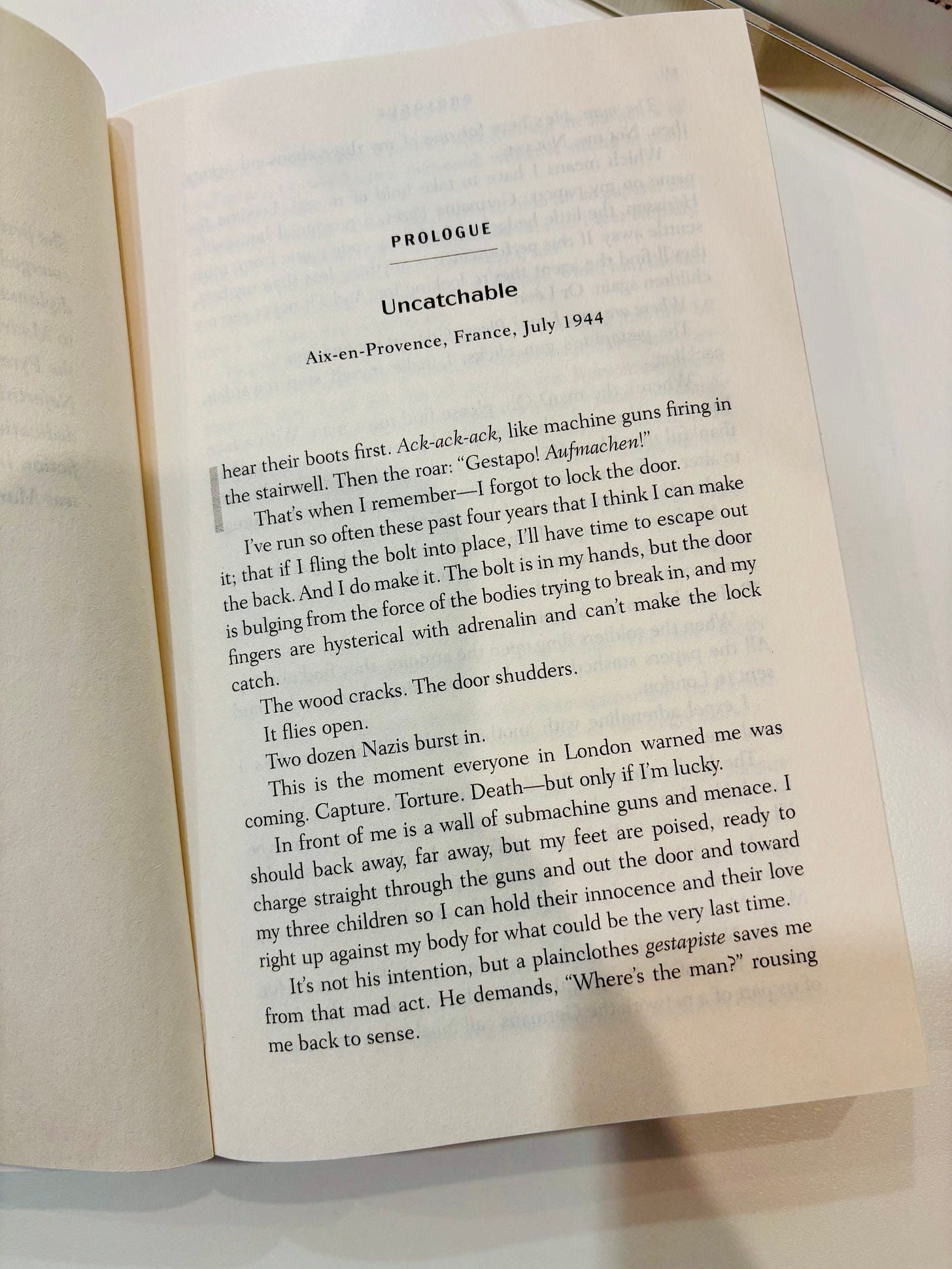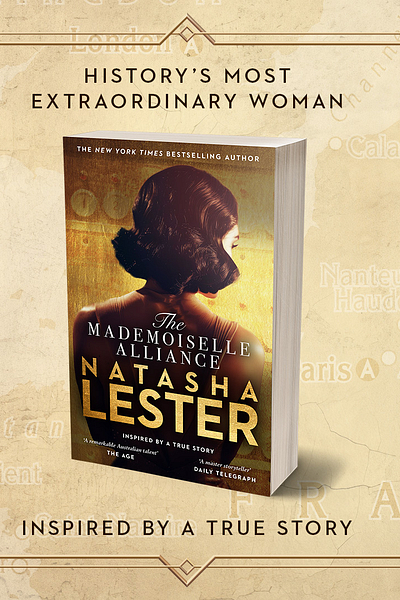Every time you sit down to write a book, there are so many choices you have to make: first person or third person point of view; past tense or present tense; which character would be the best narrator; where to even start the narrative—at the beginning of the actual story, at some point in the middle, or within one of the most dramatic scenes? And those are just a handful of the possibilities; multiply those by about one thousand, and you start getting close to the seemingly endless range of options there are for each story.
The tricky thing is, when you’re starting a brand new book, you don't yet know exactly what the story is that you're about to write, so how can you make decisions about all of those things before you yet know what the story is or could be?
This is why I don't especially love writing first drafts. In a first draft, the amount of choices you have to make is almost overwhelming and with every choice, it can seem like you're either wringing the life out of the story you’d imagined when you first came up with the idea or, sometimes (rarely!), it can feel like you’re infusing it with more magic than you’d hoped possible.
Of course you want the latter to happen. And of course you don't want to make any wrong choices because, if you do, one of two things will happen:
You won't realise you've made the wrong choices and you’ll spend months or even years wrestling with a story, wondering why it isn't working the way you wanted it to
You will realise you’ve made the wrong choices and then you have to go back and change everything. Some of those choices are incredibly fiddly and time consuming to have to rework, and every writer dreads having to pore over chapters of their work to change all the pronouns from she to I or all the verbs from the past tense into the present
You Have to Convince Yourself That Experimentation is Fun, No Matter What the Result Is
One of the most important attributes that a writer needs to have is openness to experimentation. You have to be willing to write the wrong tense or the wrong point of view or the wrong opening chapter in order to find the right tense and the right point of view and the right first chapter. You have to be willing to not get it right the first time which, as a control freak, I find incredibly confronting
For example, when I sat down to write The Mademoiselle Alliance, I knew that I was most highly skilled at writing third person, past tense because my last several books has been written using that tense and that point of view.
Just to clarify what that means, here's an example sentence: “Mizza stared in painful confusion at her mother. Her father was being buried today. But her mother’s eyes were dry and her attention was focused on Mizza’s face, which was tear-streaked and red rather than remarkable.”
In the third person, I'm using she and her rather than I, and the narrator can be external to the narrative, describing Mizza staring at her mother. In close third person, I can also narrate from within Mizza’s consciousness and tell the reader what she’s thinking. These sentences from The Disappearance of Astrid Bricard are also in past tense; I'm using stared rather than stares, for instance.
But just because I was the most skilled at that POV and that tense, did that mean I should continue to write like that in The Mademoiselle Alliance? I wasn't sure. I had a feeling that because I was writing a bio fiction, a novelised account of a real person's life, it ought to be in the first person. I didn’t really know why I thought this other than that if I was going to try to inhabit someone's story, shouldn't I try to inhabit their worldview, their consciousness, their perspective on life?
So for the first few weeks, I wrote some chapters in the first person and some in the third person. I felt like my third person chapters were more fluent, but they were missing something essential, a closeness of connection to the main character that I felt the story needed. At the same time, I was playing around with tense. Present tense is generally deemed to be more literary, while third person is generally deemed to be more commercial. (Incidentally, I don't really know why this is because I don't think a tense is specific to one style of writing or another. Instead, tense should arise out of whatever it is you're trying to achieve in the story.)
It Needs to Feel Like It’s All Happening Right Now
My reasoning for all of this only became clear to me yesterday when I was listening to the first session being taught as part of a series of workshops by
and Emily Perkins. They included a short snippet of a video of Hilary Mantel talking about her decision to write Wolf Hall (one of my favourite novels) in third person, present tense. Mantel describes how the first thing we encounter in the novel is Thomas Cromwell lying on the ground, being beaten almost to death by his father. Cromwell thinks he’s going to die, such is the violence of the beating. And Mantel goes on to say that the very idea of him thinking he's about to die, that his life is about to end, is crucial. To get the true sense of that, you need to narrate in the present tense because that beating needs to feel like it’s happening right now, with all the fear and uncertainty that engenders. If you write in the past tense, then the reader knows that Cromwell survived. You're undercutting the tension of the moment.And it was exactly why, after writing some chapters of The Mademoiselle Alliance in the past tense and some chapters in the present tense, I decided—on gut instinct alone—that the story had to be written in the present tense. The very survival of Marie-Madeline and her agents is in question throughout the entire book. If I was to relate her story and the story of her agents in the past tense, then the writing loses it sense of urgency—the fact of their survival seems like a foregone conclusion because someone is narrating these events after the fact.
And if I wanted my readers to be right there with Marie-Madeleine as she runs from house to house, staying just ahead of the Nazis, then I needed to write her story as if it was happening to a real person, to an I. And I needed to write as if the reader was running with her, worrying with her, fearing with her, loving and rejoicing with her.
So yes, it did mean quite a bit of rewriting. Every chapter I'd written in the third person and every chapter I'd written in past tense had to be rewritten into first person, present tense. It's fiddly going in and changing every single she or her to my and I. It's also very fiddly going in and changing every present tense ending of a verb to a past tense ending.
But without experimenting, I would never have found the right combination of choices for the book and it would have been all the poorer as a result. Without being willing to write the book the wrong way, I would never have found the right way to write it.

It’s All About Gut Instincts
As I said, so much of this is instinct. Sometimes I listen to writers sitting on a stage at a writers festival, explaining eloquently why they made certain narrative choices in their books and I marvel at how aware they are of the reasons behind what they're doing. For me, sometimes I am aware of the reasons for a particular choice, but most of the time it's just because it feels right. And that was certainly the case in writing The Mademoiselle Alliance. Once again, being a control freak, this very impulsive way of decision making is a little unsettling. What if your gut instincts are wrong?
Except that, in writing, I think your gut instincts are usually the most accurate thing of all. It's just that sometimes we don't listen to them.
The Gut-Book Connection
I know there’s a gut-brain connection, but I also think there’s a gut-book connection. Your gut instinct in writing comes from reading lots of different kinds of stories from all different genres, good and bad, ones that you like and ones that you don't like. If we haven't read widely, then we don't understand the variety of choices available to us as writers and therefore we can never use that variety of choices—and nor can we ever choose wisely.
Of course, every writer is aware that readers may enjoy the choices we’ve made or they may loathe them. Some readers just don’t like present tense, for example. But we do what we think is best for at the story that we want to tell. And when the story is complete and we hand it over to our readers, all we can do is hope.
That’s the moment when we have no control at all. We can't sit beside the reader and explain why we made this choice and that choice, can't point out the brilliance of our thinking and why a different choice wouldn't have worked anywhere near as well. We can only trust the reader, can only hope that all of our choices bring most readers a little sigh of pure pleasure as they reach the end of the book and close the covers and think about how wonderful it was to spend several hours with that set of characters in that particular story.
That's what we all dream of—and that's what keeps us writing.
PS - a couple of months ago, I shared the first chapter of The Mademoiselle Alliance with my paid subscribers. If you missed it, you can read it here.
⭐️ For information about my upcoming book tour to WA, QLD, NSW, VIC and the ACT, please click here.
⭐️ To preorder The Mademoiselle Alliance, please click here.






You have such great capacity to capsulize and simplify process. You can take what many books dedicate themselves to, and pretty much sum things up in a few paragraphs! You are one of the few creatives I pay for on Substack; grateful for the ability to do so. I do this not just because I love your books, humor, style, voice and vast knowledge, but because I admire and respect you. What I value most in you is your excitement and generosity in sharing with a pure and open heart, with no expectations. What a rare and a true gift to your readers. Good luck on your tour Natasha, and stay well!
Gosh, I felt like you were writing this post - directed at me! My writing buddy and I often discuss tenses and POVs ... and the merits of the choices we make. But I love your suggestion to EXPERIMENT and have fun with it, even if that means there may be more rework at the end. Thanks for sharing your thinking and process, as always, and I still ADORE that opening chapter. It is so riveting, suspenseful and magnetic, well done! x